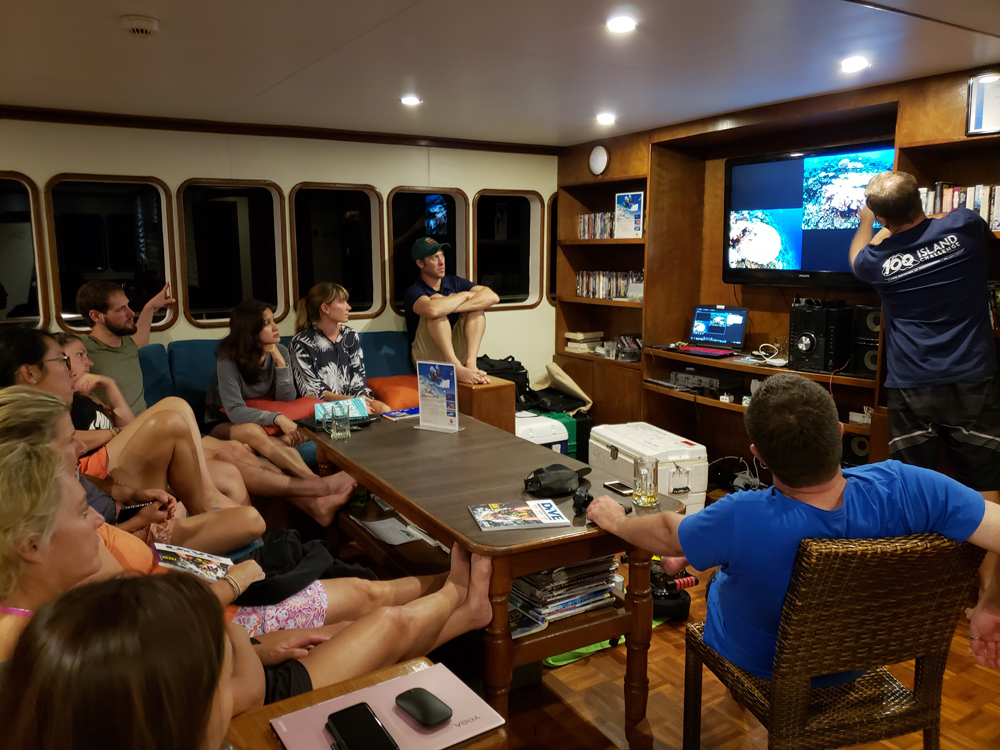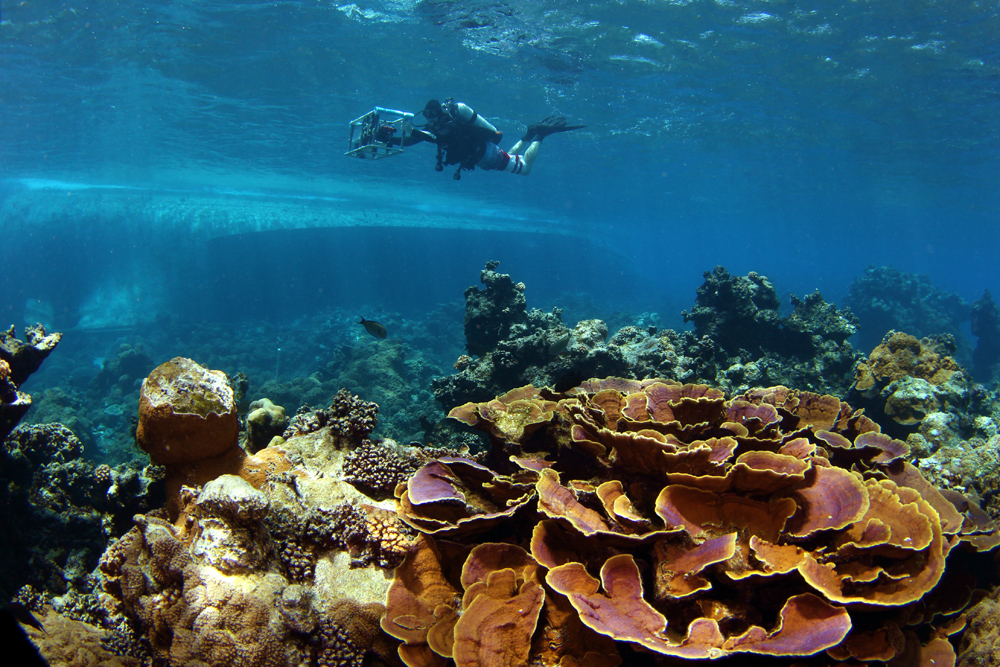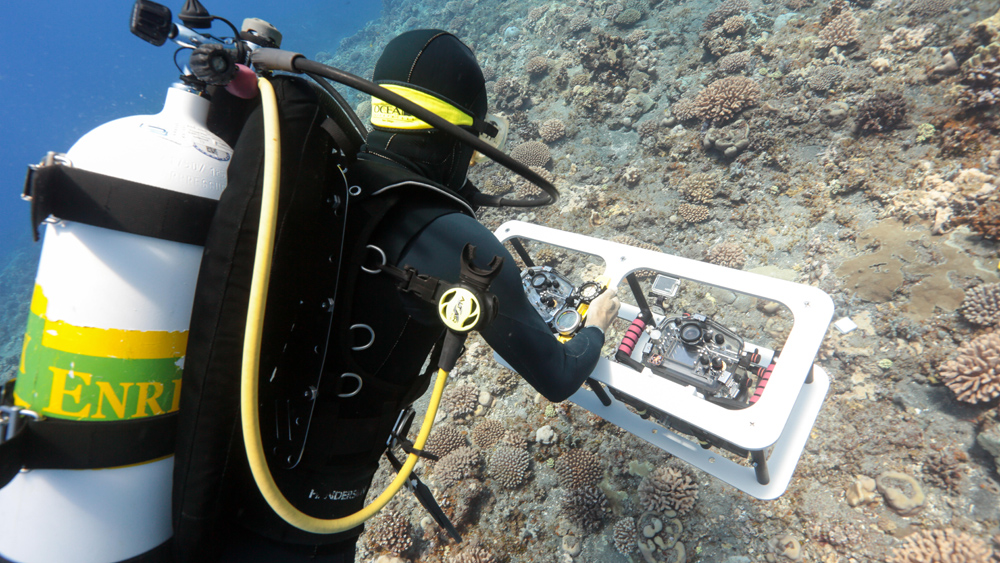Marine Life & Conservation
Carpe Diem Maldives announce Marine Expeditions and Conservation Programmes with Scripps for 2019
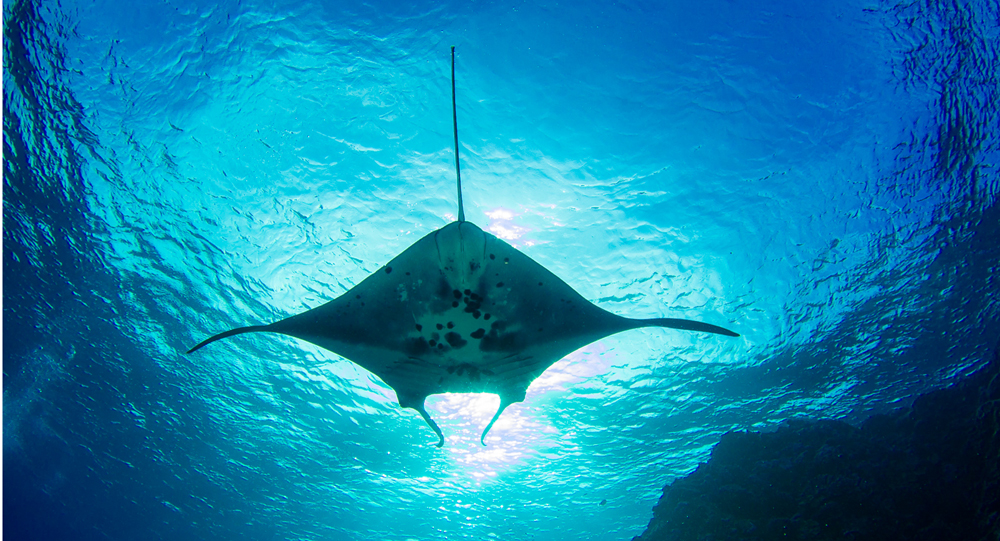
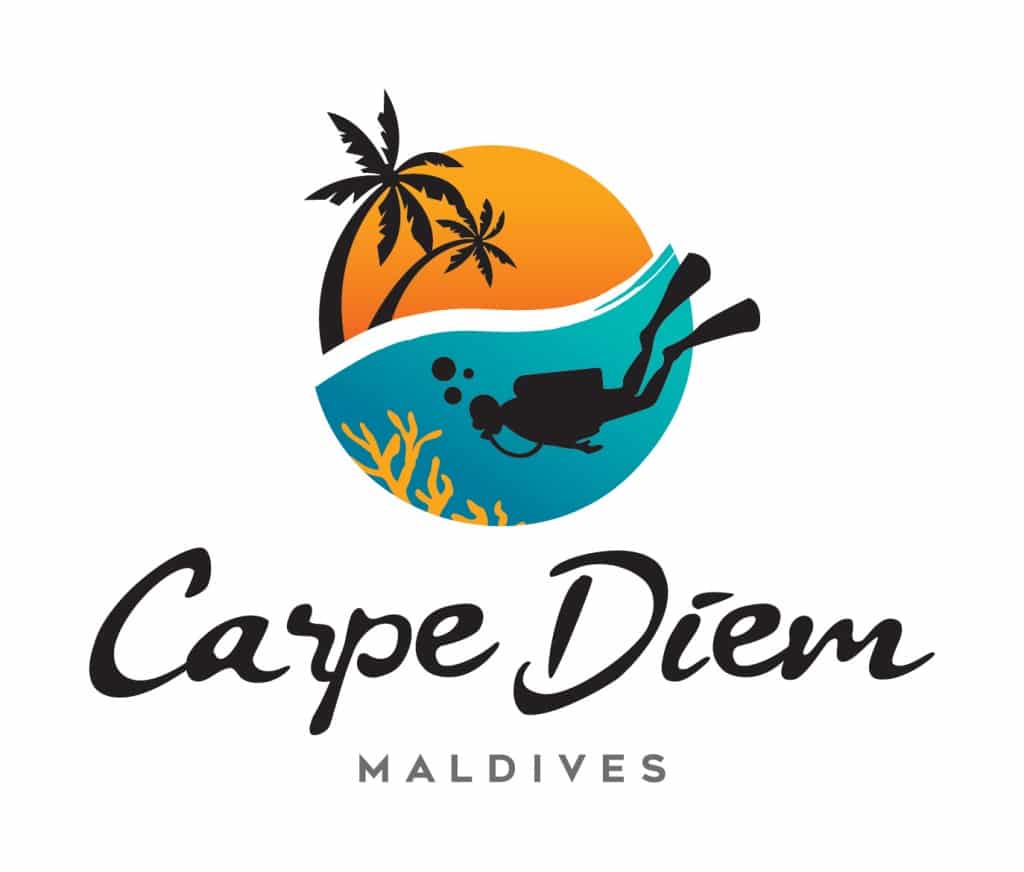 Following the successful exploration visit by Scripps Institution of Oceanography, USA, in September 2018, a research collaboration with Carpe Diem Maldives continues through 2019 on the cruises and at the new resort for the 100 Island Challenge.
Following the successful exploration visit by Scripps Institution of Oceanography, USA, in September 2018, a research collaboration with Carpe Diem Maldives continues through 2019 on the cruises and at the new resort for the 100 Island Challenge.
At the heart of Carpe Diem Maldives everyday operations is a commitment to preserving the reef and marine life of The Maldives. Acting on this promise, Carpe Diem Maldives is delighted to continue with the Dive with a Purpose marine conservation programmes for 2019 in collaboration with Scripps Institution of Oceanography from the United States of America.
Guest divers can join the visiting scientists from Scripps with a choice of two Dive with a Purpose trips on our award-winning cruises, as they continue to research the effects of climate change on the underwater ecosystem and to describe the variation of coral reefs across the globe. The Scripps visiting scientists will also spend two weeks at Carpe Diem Beach Resort & Spa in Raa Atoll, as part of their 100 Island Challenge research programme.
Agnes Van Linden, Assistant Managing Direct for Carpe Diem Maldives says:
“The knowledge shared and the guest experience on the September trip with Scripps this year was very inspiring and we received excellent guest feedback. In recent years we have focused on reef cleaning and Crown of Thorns Starfish, which has been invaluable and from that, many of our cruises since then regularly include one conservation dive at the request of the guests. Our dive guides have learnt so much from the past trips, its wonderful to be able to continue that work and offer it all year round. This new collaboration with Scripps takes the Dive with a Purpose trips to another level and at the same time we are delighted to support their own research work in doing so. It’s meaningful for us, for our guest divers and of course, in the best interests of the environment.”
The cruises departing April 11-21 on Carpe Vita and May 5-11 on Carpe Novo will offer up to 3 dives a day to visit a cross section of reefs that were damaged in the 2014 coral bleaching and haven’t been visited since then, as well as healthy reefs with an abundance of marine life. Each of the Dive with a Purpose safari cruises invites 16 guest divers to join the 4 marine scientists as they replicate the methodology of the classical field surveys Scripps undertake, using innovative imaging and data technologies to archive reefs digitally and watch how populations change through time.
Most of the dives will be on healthy reefs with soft and hard corals, giving divers the opportunity to see manta rays and the underwater life that is naturally surrounding each dive. The scientific research element is an enhancement to this particular cruise itinerary. Recreational guest divers joining the cruise will learn how to take their own reef images to recreate a virtual reality of the dive using special software. In the evenings, presentations will elaborate further on the sightings of the day and the work of Scripps 100 Island Challenge.
During their visit to The Maldives, the Scripps researchers will also spend two weeks at Carpe Diem Beach Resort & Spa to continue their project surveys on the sites officially assigned to the 100 Island Challenge. With the professional and scientific sampling approach, the research results will contribute to a better understanding of the current state of coral reefs globally and provide invaluable insights into how and why the reefs are changing through time.
General Manager, Socrates Alvaro says:
“This opportunity is invaluable to a guest experience. To be able to snorkel or dive with such a high caliber of marine research scientist amidst the beauty of The Maldives destination, hear presentations and knowledge sharing evenings, and gain an informed and comprehensive understanding of our coral reefs is truly enriching. The threat posed by climate change and the need to preserve coral reefs globally is one of the most important issues facing us today. That’s one reason why we began planting a coral nursery in our lagoon one year before even opening the resort. Every day presents new opportunities and it is for us to embrace these and, literally seize the day! I am delighted we are able to support the tremendous work Scripps are undertaking as part of a global research programme, and bring that to The Maldives in such a way that guests can learn and benefit too.”
On reefs visited with Carpe Diem Cruises and on the house reef at Carpe Diem Beach Resort & Spa the visiting researchers from Scripps will provide scientific context to coral reef observations through informational lectures, discussions, and general conversations. They will demonstrate use of 3D imaging within the context of the 100 Island Challenge, introduce workflow and approach for 3D imaging to guest divers, and create 3D models from guest-collected imagery, providing them with a 3D image as a take-home memento for participating in the dive with a purpose week.
For more information, please enquire with your local travel agent or direct with Carpe Diem Maldives at info@carpediemmaldives.com.
For more information on the 100 Island Challenge, please visit 100islandchallenge.org.
In the Winter issue (out January 2019!) of Scubaverse’s Dive Travel Adventures, read all about Yo-Han Cha’s expedition with the Scripps Team aboard Carpe Vita!
Marine Life & Conservation
Paul Watson Released as Denmark Blocks Japan’s Extradition Bid

Renowned anti-whaling activist Paul Watson has been released from custody in Greenland after spending five months in detention. Denmark’s Justice Ministry rejected Japan’s request for his extradition, citing insufficient guarantees that his time already served in custody would be credited against any potential sentence.
The 74-year-old Canadian-American was arrested on July 21 in Nuuk, Greenland’s capital, when his ship docked to refuel. His arrest was based on a 2012 Japanese warrant related to a 2010 encounter in Antarctic waters. Japan alleged Watson obstructed operations and caused damage to a whaling research ship during efforts to disrupt illegal whaling. Watson has consistently denied these claims, maintaining his commitment to marine conservation.
Denmark, which oversees extradition matters for Greenland, concluded that while the legal conditions for extradition were met, the lack of assurances from Japan regarding time-served credit made extradition untenable.
In a video shared by his foundation, Watson expressed gratitude and relief, saying, “After five months, it’s good to be out… and good to know they’re not sending me to Japan.” He added that the most difficult part of his time in custody was being separated from his two young sons.
Watson is a pioneering figure in marine conservation, known for founding the Captain Paul Watson Foundation in 2022 after decades of activism with the Sea Shepherd Conservation Society. His bold efforts to defend marine life have earned him widespread support, including from celebrities and conservationists. His work has also been featured in the acclaimed reality TV series Whale Wars.
Watson’s lawyer, Jonas Christoffersen, praised the decision, stating, “We are happy and relieved that Paul Watson is now free.” He added that Watson is eager to reunite with his family and continue his vital work.
The arrest occurred while Watson’s vessel, the M/Y John Paul DeJoria, was en route to the North Pacific with a team of 26 volunteers to intercept a Japanese whaling ship. His foundation described the arrest as politically motivated and emphasized that Watson’s actions were focused on ending illegal whaling practices.
Japan resumed commercial whaling in 2019 after leaving the International Whaling Commission, asserting that whale meat is a cultural tradition. Conservationists, however, continue to challenge these practices, highlighting their impact on marine ecosystems.
Despite the challenges, Watson remains steadfast in his mission to protect marine life and bring attention to whaling practices. His dedication to ocean conservation has made him a globally respected advocate for the environment.
Marine Life & Conservation
12 Days of Zero-Waste Fish-mas

This holiday period, the Marine Conservation Society, the UK’s leading ocean membership charity, invites you to make some simple changes to eating fish this Christmas to help our seas.
Dr Kenneth Bodles, Head of Fisheries and Aquaculture at the Marine Conservation Society, said, “During the festive season, our consumption increases, but so does waste. Sustainability isn’t just about where food comes from – it’s also about how you use it. By reducing waste and making the most out of your seafood, you’re not only taking steps to be more ocean-friendly, but can also help to cut costs during what is often one of the most expensive times of the year”.
The Marine Conservation Society has compiled twelve tips on how to consume seafood sustainably with zero-waste this Christmas:
Buy whole fish instead of fillets
Instead of fillets, consider buying whole fish such as salmon, hake, or lemon sole. By adopting a “nose to tail” approach with cooking, whole-baked fish not only feeds a crowd, but also helps to minimise waste and maximise sustainability by using up every part of the animal, including bones, skin, and fat.
Make fish stock
Leftover fish bones or shells can be put to good use by boiling them to make a nourishing fish stock or bisque. This can be frozen and preserved for later use and makes for a flavourful base in a soup.
Make your own fish pâté
Avoid waste by turning leftover fish, such as smoked mackerel or salmon, into a delicious pâté by blending with cream cheese and lemon. Perfect when paired with crackers.
The sustainability of salmon and mackerel varies depending on where and how it is caught or farmed. For more information on green-rated options, check the charity’s Good Fish Guide.
Buy frozen
By purchasing seafood that is frozen or vacuum-packed, this helps to reduce waste by extending the shelf life of your food.
Fish pie
If you’re wondering what to do with leftover cooked fish, why not opt for a classic fish pie with mashed potatoes, leeks, and a cheesy sauce? A sure crowd pleaser on Boxing Day.
Use the head
Don’t forget the fish head! The meat is incredibly tender and flavourful. The charity recommends a cod’s head curry or recreating Fallow’s renowned cod’s head in siracha butter.
By stretching your ingredients further, not only is this a more sustainable way to enjoy seafood, but also cost-effective by repurposing leftovers and cooking creatively.
Boxing Day brunch
Mix leftover kippers or smoked salmon with scrambled eggs for a tasty, zero-waste, Boxing Day brunch.
For best choice, make sure you buy kippers, or herring, from the North Sea and the North Irish Sea.
Zero-waste storage
A top tip from the Marine Conservation Society to avoid waste is freezing fish offcuts to save for future use.
Crisp up the skin
Even leftover fish skin can be turned into a quick savoury snack by crisping it up in an air fryer with a little olive oil and salt.
Anchovies two ways
Leftover anchovies can either be blended with butter to make a delicious anchovy butter or tossed into pasta for a hit of umami flavour.
The charity recommends opting for anchovies caught in the Bay of Biscay for best choice.
Fishcakes
For an easy, zero-waste meal, leftover seafood trimmings can be mixed with mash and fried in breadcrumbs to make fishcakes.
Pickled mussels
Try pickling mussels in 1:1 vinegar and water, with a dash of sugar for a sustainable, zero-waste snack that can be enjoyed well beyond the festive season.
Mussels farmed in the UK are a seafood superhero. Grown using low-impact methods and harvested by hand, they get all the food they need from the sea around them. This makes them one of the most sustainable, ocean-friendly, and cost-effective seafood options.
Players of People’s Postcode Lottery have raised £6.6M towards the Marine Conservation Society’s vital work in making seafood more sustainable.
Laura Chow, Head of Charities at People’s Postcode Lottery, said: “Fish is a festive favourite for many, but making sustainable choices when it comes to how we buy and eat seafood makes all the difference for our ocean. Support from players of People’s Postcode Lottery has helped the Marine Conservation Society further its sustainable seafood work, so that we can all enjoy healthier, better protected seas.”
The Marine Conservation Society encourages you to make sustainable seafood choices a year-round habit, not just for Christmas. To check how sustainable the seafood on your plate is, you can visit the charity’s Good Fish Guide. The Guide helps consumers and businesses identify the most sustainable seafood using a simple traffic light system, based on where and how species are caught or farmed. Green is the best choice, amber means improvements are needed, and red indicates fish to avoid buying.
Zero-waste gift idea
Why not embrace a zero-waste Christmas by gifting a membership to support marine conservation? It’s a meaningful, low-waste gift that helps protect our ocean for generations to come. Memberships start from as little as £5 a month – the price of a sandwich and drink from your local coffee shop.
Find the latest sustainable seafood advice for wild-caught and farmed seafood on the Good Fish Guide, downloadable to your phone from www.mcsuk.org/goodfishguide.
-

 News2 months ago
News2 months agoIconic SS United States to become the World’s Largest Artificial Reef
-

 News3 months ago
News3 months agoBook Review – 52 Assignments: Underwater Photography
-

 Gear News3 months ago
Gear News3 months agoDYNAMICNORD – New German diving brand enters the British market
-

 News3 months ago
News3 months agoExploring Cenote El Pit: A Diver’s Dream
-

 Gear News3 months ago
Gear News3 months agoTry BARE drysuits (and maybe even win one!) this Friday with Sea & Sea at North West Dive Fest
-

 Marine Life & Conservation3 months ago
Marine Life & Conservation3 months agoBook Review: Coral Triangle Cameos
-

 Blogs2 months ago
Blogs2 months agoDive the Egyptian Red Sea this Autumn with Regaldive
-

 News3 months ago
News3 months ago2024 Ocean Art Underwater Photo Competition Announced


